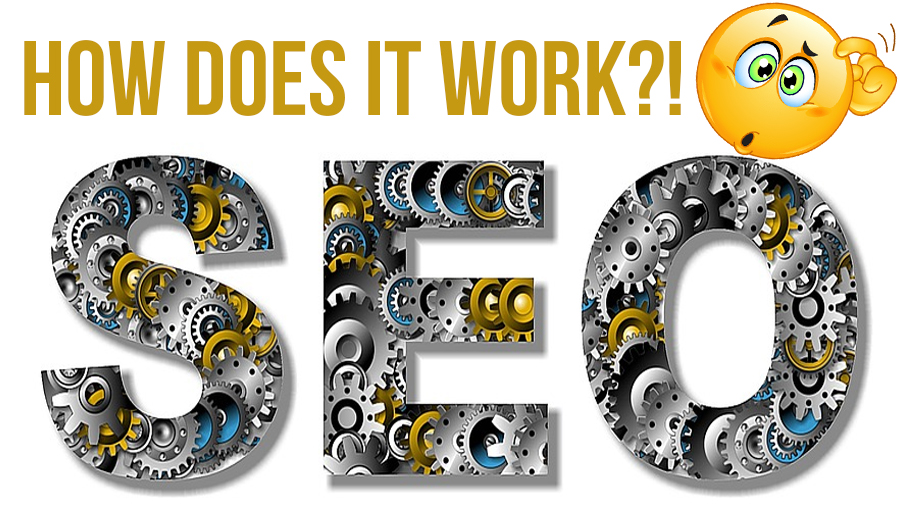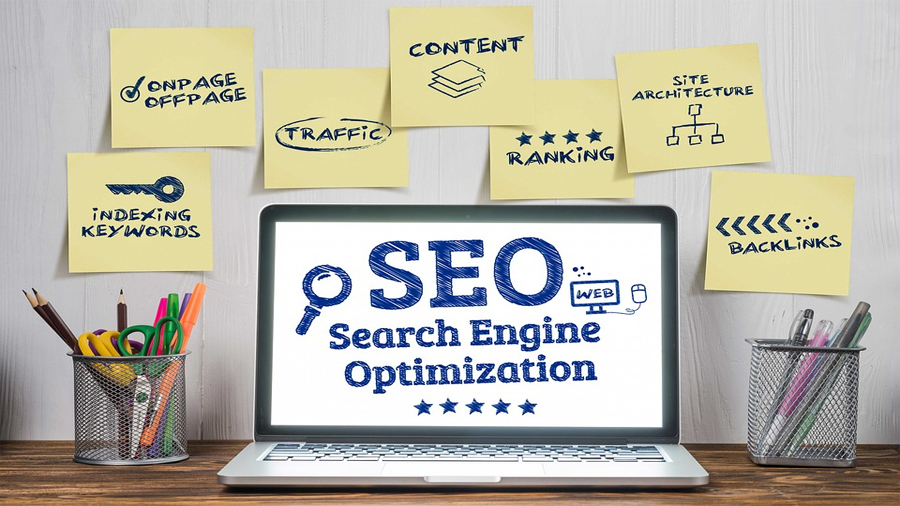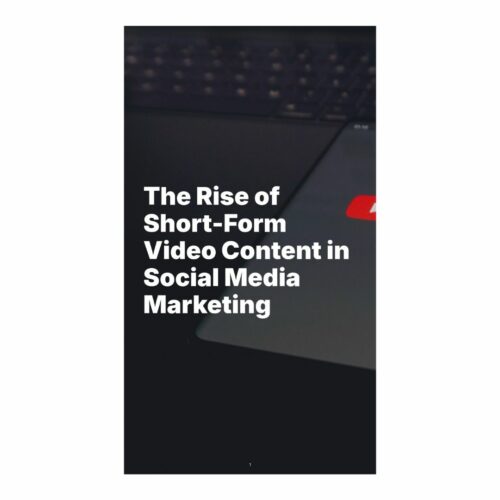What Does Search Engine Optimization (SEO) Mean?
Understanding Search Engine Optimization.
Search Engine Optimization means ensuring that your online content is created in order for search engines to understand, and rank your content high on search results. Things like your onpage seo tactics, backlinks, web authority, and even your social media are factored into the overall search engine optimization of your content.
Since all of these effect your SEO, it’s important to understand why they effect your SEO in order for you to better grasp what search engine optimization means.
Get A Better Understanding Of SEO.
- Search Engines: Why Do They Pick The Results They Show?
- Creating Great Value For Users Will Result In Search Engines Declaring You The Expert.
- Become The “Popular Kid” w/ Backlinks & Other Web Authority.
Learn More About SEO:
Search Engines: Why Do They Pick The Results They Show?
In order to understand what search engine optimization means let’s first take a look at how a search engine actually works.
A search engine is pretty much just an Online Librarian that you can ask any question. Once you ask your question, the librarian then gives you the best online references (That It Knows Of) in order to answer your question.
But, how does the Librarian (Search Engine) know the best references (Search Results) to show you?
Here’s How Search Engines Work.
Search Engines work by doing three main functions to any given webpage. These three functions are:
-
Crawl
-
Search Engines use robots, aka crawlers in order to find, look over, and understand webpages across the internet.
-
-
Index
-
Once the robot crawls a webpage it then stores, and organizes the information in order to be displayed in search results.
-
-
Rank
-
After understanding your webpage the search engine will then rank your webpage based on it’s relevance to many search terms. If your webpage is the most relevant for any given search term it’s likely you’ll be a reference the search engine recommends. If your webpage sucks… Well you won’t be a reference.
-
Becoming the reference that Search Engines show in the organic search results is pretty much the meaning of SEO, but it’s much harder than it sounds.
Creating Great Value For Users Will Result In Search Engines Recommending Your Content.
When we talk about creating great value for the user we’re not talking about that really valuable, but one-time piece of content. (Although It’s A Great Start)
We’re talking about the content that is going to:
-
Encourage The User To Consume Your Entire Piece of Content
-
When you’re writing content for your website it’s very important to write it so that a user wants to read the entire thing. Boring text, long paragraphs, and no images are a great way to lose a user very quickly. Instead write your content so that it’s very easy to understand, fun to read, and engage them with pictures, videos, and even GIFs. Writing your content in this way will have a huge upside when it comes to your SEO.
-
-
Engage w/ The User In Order To Provoke Comments, Likes, & Even Shares
-
It’s no secret that when your content gets likes, comments, or even shares that it’s great for your online reputation. Therefore in your content ensure that you’re asking questions, giving information, providing polls, and engaging your user in a positive way. At the end of your content ask the user to comment their thoughts, like your content, and even share it with their friends in order to maximize results.
-
-
Provide Value To The User In Ways Other Than Selling Your Product/Service
-
Online users love information that has nothing to do with your product. The reason for this is because people hate being advertised to, and if you’re only talking about your product/service then you’re always advertising. Give your users how to videos, informational content, and even free resources to use before they’re a customer. That way when they’re ready to buy your business will be the first one they think about.
-
-
Make The User Come Back For More
-
Producing great content will have a great benefit for you, and that benefit is that your users will come back to your website! When you create an online portal that users want to come back to search engines will know that you did, and when this happens your traffic will love it!
-
<img src="https://www.infinitemediaresources.com/wp-content/uploads/2019/10/reliable-website-backlinks.jpg" alt="how search engines deem you reliable example" class="aligncenter"
Creating consistent content geared towards the above is important because you’re never an expert on the first day. Just like in life where you work on your craft for years before perfecting it. Search engines feel the same way.
Before a search engine is going to just say “This Website is an expert, and everyone in the world should listen to it.” the search engine is going to ensure you’re reliable.
In order for a search engine to deem you as reliable it’s going to look at:
-
How long your website has been around.
-
Websites that have been around for a long time have a much higher chance of being deemed as reliable. Therefore it’s best to start your website ASAP, and stay consistent with it for years to come.
-
-
The amount of value that you provide for the user.
-
If your webpage is providing the same amount of value or less than other webpages it’s most likely you won’t see great results. Be looked at as more reliable by providing more valuable content than the others in your niche.
-
-
If your content is easy to understand.
-
Not everyone is a rocket scientist, and in fact most people aren’t. Because of this you want to ensure that your content is easy to understand. Content that users can’t understand will mean more users are leaving your content, and that is very bad for reputation.
-
-
Which other credible web resources back your content. (Backlinks)
-
Search engines love when other websites co-sign you. What we mean by this is that for each time your website is linked onto another website that is a “Co-Sign”. These backlinks give you major power when you’re talking about search engine optimization, especially if the backlink lives on a very reputable site (Like MSN.com).
-
-
How long the user is engaging with your content.
-
For you to have a high reputation search engines prefer that users are staying on your content for a decent amount of time. If users are seeing your content and leaving quickly because it’s not what they are looking for or because it didn’t answer their question this will be negative for your search engine optimization.
-
-
The bounce rate of your web content.
-
Web content that has a high bounce rate is web content that people leave quickly upon seeing. High bounce rate pages will see a negative effect when it comes to search results.
-
-
Your social media presence.
-
A great way for search engines to deem someone/something as reputable is by the social media presence they have. If a large social media account is continuously providing value to users than search engines are going to love you, and this will positively effect your search engine optimization.
-
-
And So Much More
-
Search engines like Google use very advance algorithms in order to determine which webpages show up in the search results. Because of this known fact, you can ensure that search engines take factors into consideration that we don’t realize. (Dont beileve us? Just look up RankBrain.)
-
Now, we know that those are a ton of factors that you can only try to control… But the point is that in order for your content to be positive in more columns than negative you need amazing content.
Becoming Cool w/ Backlinks and Other Web Authority.
Sometimes just putting out the best content that you can still isn’t quite enough to find yourself landing on search results. The reasons for this can be plenty, but one big reason why could be because of your web authority.
Your web authority can be thought of as pretty much your reputation online. The better, and more vast your reputation online, the better it is for your search engine optimization.
Some things that you can do in order to get better web authority are:
-
Get More Online Reviews
-
Reviews are a huge deal now a days when it comes to users turning into customers. There is almost nothing stronger for your reputation than having hundreds, or even thousands of online reviews. When focusing on reviews it’s our opinion that Google reviews, Facebook reviews, and Yelp reviews are the most powerful to get. One great way to get more reviews is just by asking your customers to give you a review. Happy customers are more likely to give you a review than you think, just ensure you always ask and your reviews will start going up!
-
-
Build/Link Your Social Media Accounts
-
Social Media accounts are an amazing way in order to start showing search engines that you’re reputable. The more likes, follows, subscriptions, pins, retweets, and etc you have the bigger your online reputation. When you get a big enough social media following you’ll see your search engine optimization start booming.
-
-
Focus On Getting High Quality Backlinks
-
Another fantastic way for you to get better search engine optimization is to get quality backlinks. Think of it kind of like this… If you’re a newer sports blogging website you probably don’t have much of a reputation. But if someone like ESPN happen to share some of your sports articles that could change rapidly. It’s because ESPN is obviously a very reputable sports network (Maybe the most reputable), and when they reposted your blog with a backlink to your website they pretty much just endorsed your website. Get enough “online endorsements” and search engines will start showing you much more love.
-
-
Stay Consistent
-
When you’re building an online reputation you have to stay consistent. Search engines won’t start taking you seriously until you have been providing content for a sustained amount of time. Therefore if you’re expecting to show up after just a couple post you will most likely be disappointed. But when you stay consistent and search engines finally put you in search results it will be hard for someone else to take your place.
-
In conclusion, Search Engine Optimization means creating great content, building your online reputation, and staying consistent with your online strategy… Because if you don’t search engine optimization will be just another phrase.
Here’s A Recap!
What is search engine optimization (SEO)?
Search engine optimization, or SEO, is the process and procedures for your website/blog/content to get higher organic traffic due to showing up during organic search results. Your organic search rank is determined by factors like quality of content, back links, web authority, inbound links, and more.
What is an example of Search Engine Optimization?
Since search engine optimization deals with so many different factors it’s sometimes hard to understand what SEO even is. An example of search engine optimization is a Pet Store writing a blog about the 10 Best Dog Foods For Large Breeds. After much optimization, and great content, this blog may show up on search engine results for best large breed dog food, and therefore proving your search engine optimization effective.
What does search engine optimization do?
Search Engine Optimization is used in order to increase your organic search ranking on search engines like Google. When your website is better optimized for search engines to understand what your webpage is about, it allows search engines to decide if your webpage should be displayed on the first page of organic search results. Pages displayed higher on search engines will get higher traffic, and it’s the best traffic.
What is SEO in content writing?
Search Engine Optimization in content writing is when you write content in order to get attention based around any keyword phrase, or long tail keywords. This content writing is designed in order to get webpages ranked for specific terms, for an increased exposure to your website.
What is the difference between SEO and SEM?
The difference between Search Engine Optimization (SEO) and Search Engine Marketing (SEM) is that SEO is the process of getting your website to show up organically in search engine results. SEM is the creating of paid advertisements in order to be displayed on Search engine results, and other content networks.
Is SEO Paid?
Search Engine Optimization is paid in an indirect way because there is no way to pay money in order to get placed higher in organic search results. SEO is a collaboration of content creation, video marketing, on page SEO, off page SEO, keyword research, etc. Therefore all of these things take time, effort, and resources so SEO can be looked at as paid in time, effort, and money if you can’t do it yourself.











Now it’s time for a celebration because you’re done with this resource!
In the meantime… We would love to hear what you think about this resource, Leave us a comment below and let us know your thoughts!